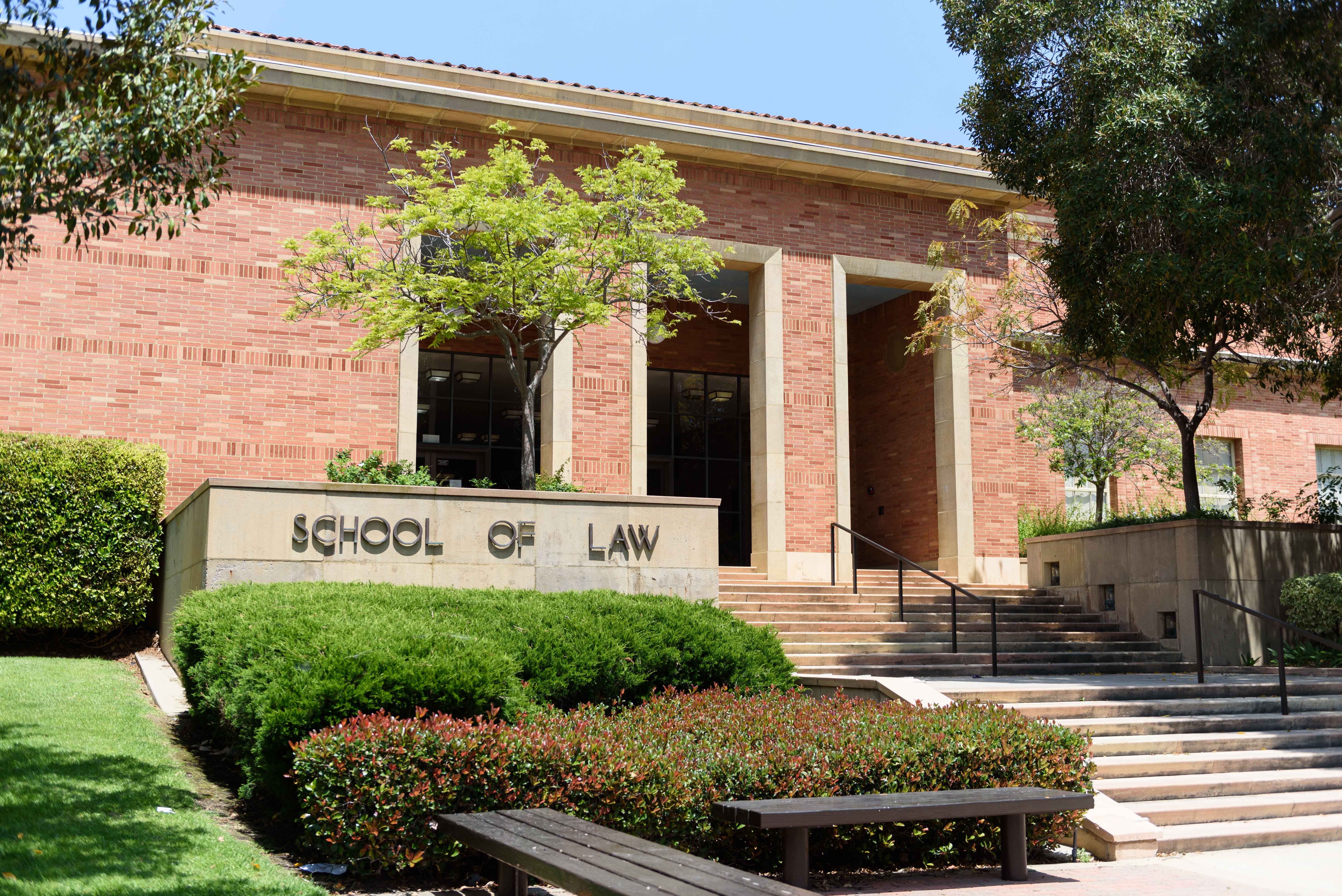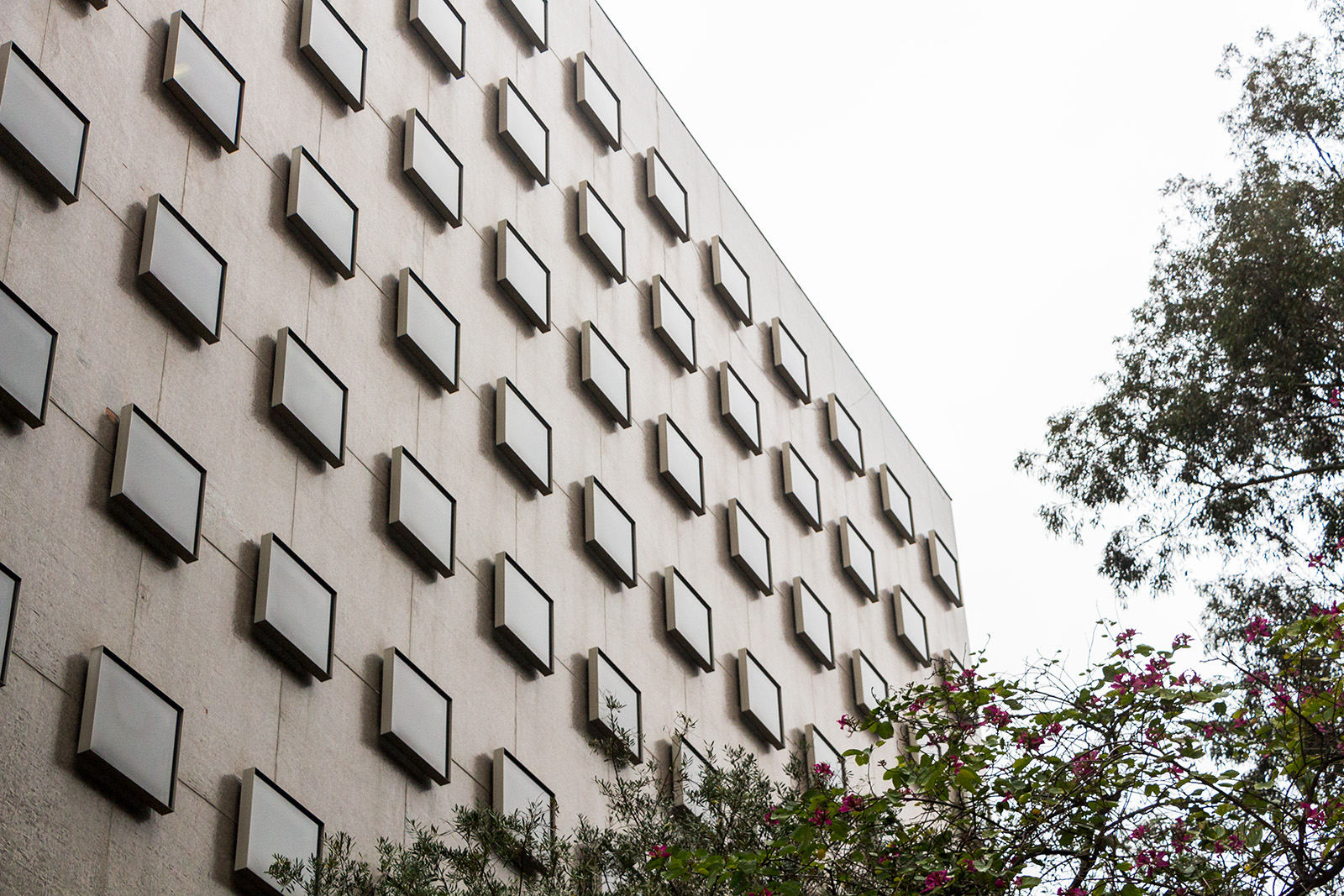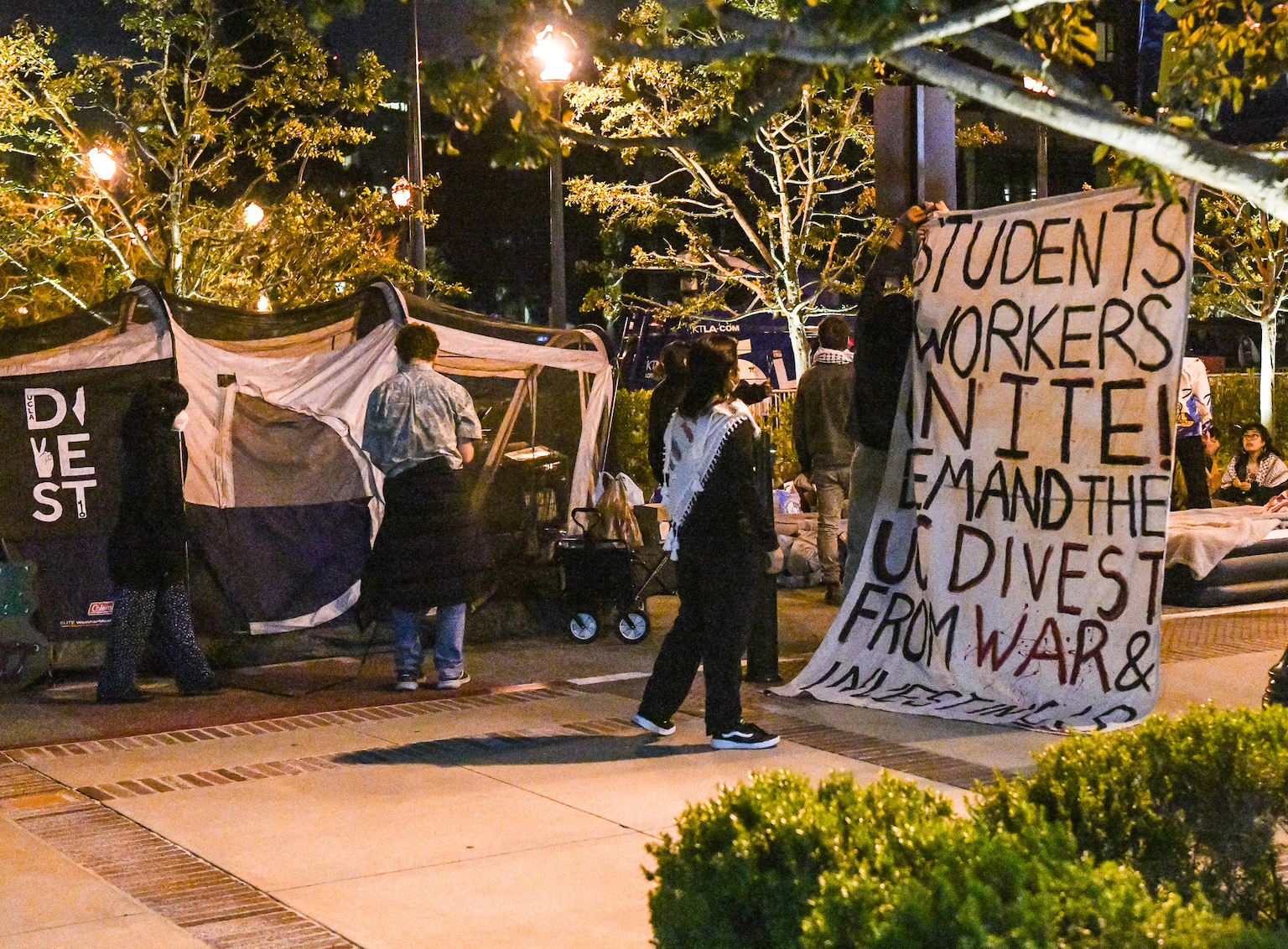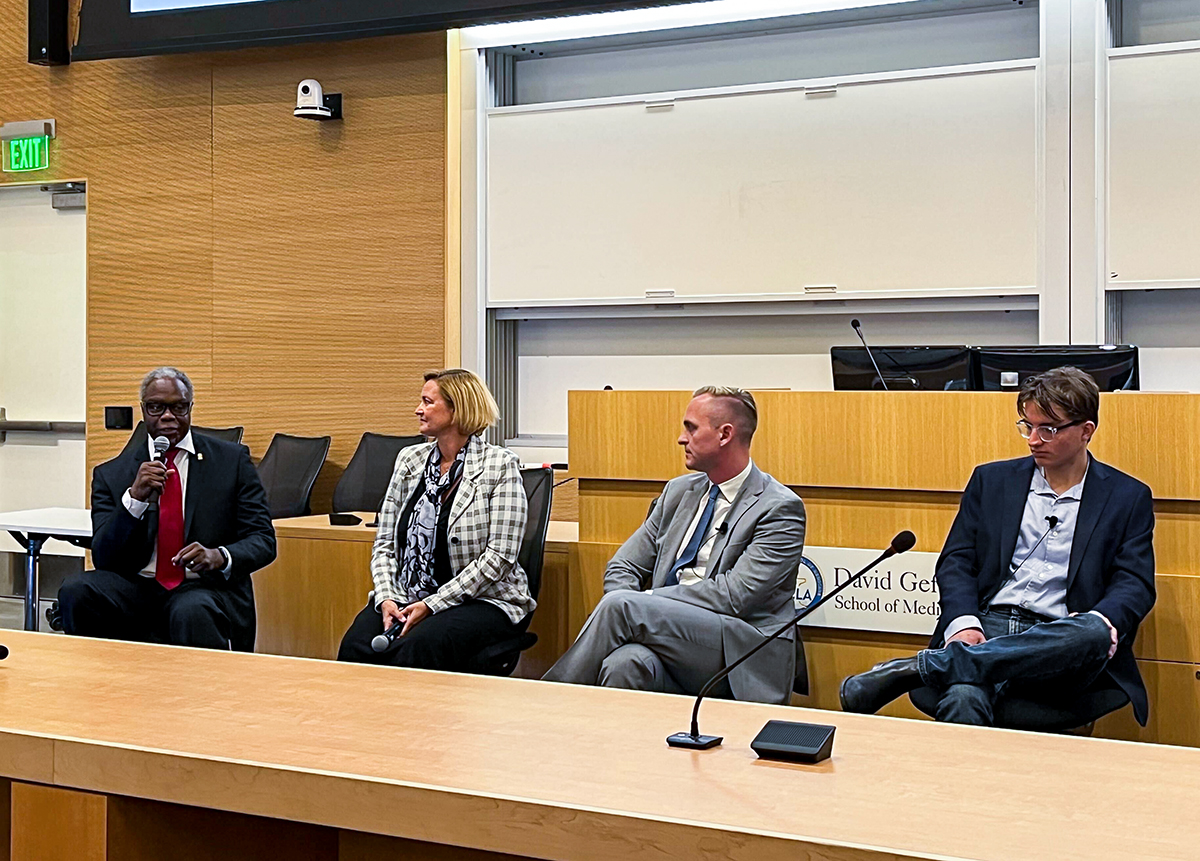Resnick Center hosts food law and policy conference, reflects on its future
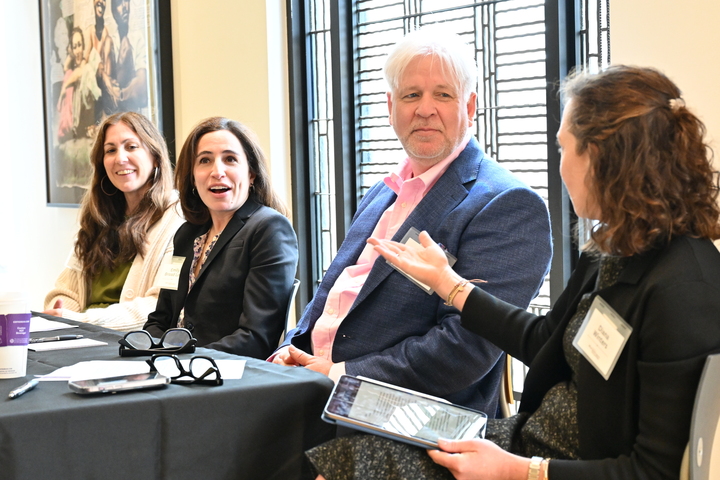
Pictured are panelists at a conference celebrating the 10-year anniversary of the Resnick Center for Food Law and Policy. (Courtesy of Todd Cheney)
By Amy Wong
April 25, 2024 7:54 p.m.
UCLA scholars, students, and food law and policy leaders reflected on the past, present and future of the field at a conference celebrating the 10th anniversary of the Resnick Center for Food Law and Policy on April 18 and 19.
The conference, “Reflecting on the Past to Advance the Future: Celebrating a Decade of the Resnick Center for Food Law and Policy,” was held at Hillel at UCLA on April 18 and the UCLA Faculty Club on April 19. Michael Roberts, the founding and executive director of the center, said the conference was designed not only to celebrate what the center has accomplished but also to examine where the center is headed in the future.
The discipline of food law is fairly new, said Diana Winters, deputy director of the center and a moderator for a panel about the history of the discipline. People started to realize in the early 2000s that food law encompasses food production, the environmental effects of food, international food law, trade issues, Food and Drug Administration law and Department of Agriculture law, she added.
The panelists for “The History of the Academic Discipline of Food Law” included Roberts, who taught the first food law class in the United States in 2004; Emily Broad Leib, the founder of the Harvard Law School Food Law and Policy Clinic; and Laurie Beyranevand, the director of the Center for Agriculture and Food Systems at Vermont Law School. The UCLA School of Law, Harvard Law School and Vermont Law School are three of the major food law centers in the U.S., Winters said.
Meleana Chun-Moy, a law student and attendee of the event, said the conference and the Resnick Center have given her many opportunities to meet influential people working on food law and policy.
The keynote speaker was Ertharin Cousin, the former United Nations World Food Programme executive director and U.S. ambassador on food and agriculture.
Roberts said he appreciated Cousin’s use of the term “reimagining” to describe the work of lawyers in the context of food law and policy.
“We have to reimagine our relationships with the government and relationship with its citizens and food when people are not eating healthy, and it’s driving up our healthcare costs,” Roberts said. “It’s affecting the ability of nations to function. The food relationship between the government and citizens is part of national security, but we have to come up with solutions that are different than we’ve thought before.”
Maria Beaucage, a law student and attendee of the event, said she found the panel on the intersections of ownership, control and environmental protection in rural environments helpful for her paper on how cooperative land ownership can help particularly people of color get into farming.
Racist practices, including how the USDA distributes loans, are well-documented, Beaucage said. These are not the only issues related to land ownership and food law, she added.
“Land is such an asset. People keep it in the family, but then those second-generation people aren’t necessarily also farmers,” Beaucage said. “That creates issues of sustainability in terms of what they’re allowed to do with the law because some sustainable farming practices require a long time to implement. If you don’t know if you’re going to be there in two years, you’re not going to pay to implement those growing practices.”
At the conference, there was also a session dedicated to discussing the missing parts in supply lines. Paula Daniels, who founded the Los Angeles Food Policy Council in 2011, and Glenda Humiston, the UC vice president for agriculture and natural resources, discussed the problems with larger supply chains, including grocery stores running out of food during crises.
“They started their conversation talking about how the pandemic really brought to the nation’s awareness that we have moved away from smaller supply chains to these larger supply chains. They don’t involve personal relationships,” Winters said. “They (larger supply chains) have less flexibility … because people no longer are working with people that they know.”
Winters said the conference has helped her think about how she can connect students with pedagogical opportunities. She added that she learned the UCs are working to source meat from regenerative meat sources and hopes to get students involved through research.
Roberts, a professor of policy, said he views food laws to be a generational issue and hopes young scholars can become academic leaders.
“We need people to think about these issues,” Roberts said. “I hope the takeaway is that we’ve energized younger folks who are very skilled and smart and passionate about these issues.”



